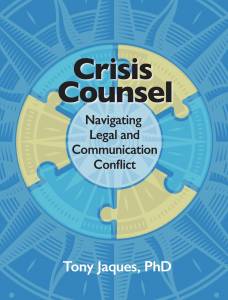Every undergraduate PR student knows from their first semester that understanding stakeholders is essential yet some big corporations appear to have forgotten that basic principle. Don’t ignore your stakeholders.
An independent report in June castigated Woolworths, Australia’s largest supermarket chain, for failing to properly consider the aboriginal people of Darwin over a plan to build a widely-opposed giant Dan Murphys liquor store within walking distance of three “dry” communities
The review, led by commercial lawyer Danny Gilbert, said Woolworths and its liquor subsidiary Endeavour, failed in engagement with the Aboriginal and Torres Strait Islander communities “…on the significance of alcohol in the community and the complexities surrounding alcohol abuse.” The 144-page report came out a month after Woolworths had announced it would abandon its plan for the megastore
The cost of ignoring your stakeholders
This saga of failure to engage with indigenous stakeholders raised inevitable comparison with what happened in mid-2020 when Rio Tinto used high-explosive to destroy 46,000-yearold aboriginal caves in Western Australia’s Juukan Gorge
The Sydney Morning Herald headlined their report: “Woolworths has just experienced its own Juukan Gorge moment” though the cases were fundamentally different. Moreover the Rio Tinto CEO and two other senior executives lost their jobs and the Chairman announced he would resign while Woolworths advised noone would lose their performance bonus
Yet the two cases do warrant comparison. Responding to the damning review of the Dan Murphy proposal Woolworths’ CEO Brad Branducci suggested management hadn’t been properly advised and said they needed to “…empower our First Nations team members and our advisory board to have a lot more carriage in terms of their mandate to give us advice.”
However it was reported that Woolworths did not consult its own external Indigenous Advisory Panel. Furthermore the company did not rule out applying again once the NT Government freeze on liquor licences expires in 2023.
Contrast this with the statement from Rio Tinto Chairman Simon Thomson announcing his decision to stand down. “The tragic events at Juukan Gorge are a source of personal sadness and deep regret, as well as being a clear breach of our values as a company. As chairman, I am ultimately accountable for the failings that led to this tragic event.” The company pledged that such a thing would never happen again.
Both companies used a legal stratagem to overcome stakeholder concerns. Rio Tinto claimed it had legal authority to proceed with the destruction of the caves though later accepted it should not have done so.
For Woolworths the legal route was a four-year fight to build the liquor megastore. When the Northern Territory’s Liquor Licensing commission blocked the proposal, Woolworths lobbied the NT government to fast-track the application, which was approved in December 2020.
The independent Gilbert review said this process “distorted fairness and did not meet the standards expected of a leading corporate citizen.” CEO Banducci said Woolworths was “humbled by the report” and conceded “they should have taken a broader definition of our stakeholders and the community that we needed to consult with.”
Why you shouldn’t ignore your stakeholders
Of course Woolworths and Rio Tinto are by no means alone when it comes to failure to recognise and involve key stakeholders.
Consider how in April, Australia Post announced a ban on delivering perishable food, supposedly because of inconsistent regulations between states. But they had failed to properly engage with small business and their own government owners and within days the plan was scrapped.
In the same week some millionaire football club owners announced the establishment of a new European Super League with 12 top soccer teams. They too failed to consult key stakeholders, including football governing bodies, and the plan collapsed in just three days.
There is no question that stakeholder engagement is essential to effective management. So why do some executive managers continue to get it so wrong?
A Parting Thought
There is in the act of preparing the moment you start caring
Winston Churchill.
Learn more about reputation risk and why you shouldn’t ignore your stakeholders when making decisions in Tony Jaques’ new book, Crisis Counsel: Navigating Legal and Communication Conflict.
“Crisis Counsel confirms Tony Jacques position as one of the industry’s foremost experts on issues and crisis management. In addressing the complex interactions between legal and communication crisis responses Dr Jacques provides riveting case studies and practical advice. It highlights the financial and reputational risks of not effectively integrating communications and legal counsel. It should be on every communications practitioner’s reading list and companies should insist their in house and external legal counsellors read it.” – Noel Turnbull, Former Chair of Turnbull Porter Novelli, Adjunct Professor, RMIT University.
“Senior managers who find themselves in the C-suite for the first time, Crisis Counsel should be mandatory reading. Such specific legal and communications provocations are not covered in university management courses, and the introduction is replete with illuminating case studies and key takeaways. The author provides sage advice for Chief Executives who must ultimately make a decision based upon what they think is the right thing to do; often under pressure. Crisis team leaders and team members will find this book equally of value, as the more you know about it, the better you and the team will be.” – Jim Truscott, Director, Jim Truscott & Associates Pty Ltd, Perth, Australia
“For far too long, the role of lawyers in crisis management has been neglected. If discussed at all, it is often in negative terms. Tony Jaques adjusts this picture in masterly, yet eminently readable terms. His comprehensive discussion of apology in crisis management is likely to be a go-to source for years to come. This is a welcome book for anyone interested in how crisis-confronted corporations (and other organizations, too) can navigate the tricky legal waters of communicating under fire. For university teachers like me, it’s a rich source of well-researched case studies. A gem!” – Chris Galloway, PhD, Head of Pubic Relations, Massey University of New Zealand

